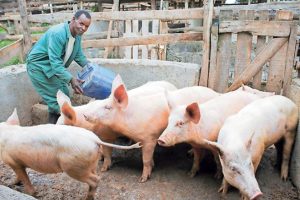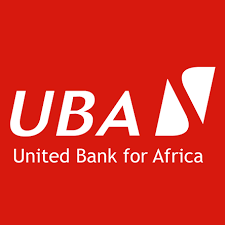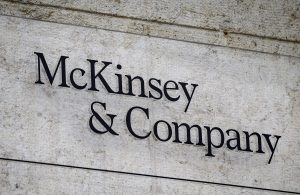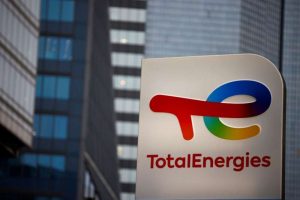By Onome Amuge
Pig production also known as ‘piggery’ or ‘pig farming’ involves the raising and management of pigs for consumption and commercial value. Analysts familiar with the production process consider pig farming a buoyant sector with strong potential to contribute over N265 billion to the Nigerian economy by 2029, if given the required attention and investment.
This is not far-fetched, given that statistics from the United Nations Food and Agriculture organisation (FAO) rate pig meat (pork) as the most widely consumed meat in the world, accounting for 36 percent of global consumption followed by poultry (33 per cent), beef (24 per cent) and goats/sheep (five per cent).
A 2023 report by Research and Markets, the world’s largest market research store, observed that the worldwide pork market was valued $ 254.53 Billion in 2022 and is projected to reach $ 418.37 billion by 2028.
So valuable is the pork industry that the FAO described it as an asset of wealth or safety net in times of crisis when viewed from the economic perspective serving as a source of protein nutritionally. A 2021 report by the FAO database, FAOSTAT, also rated investment in pork production as one of the most profitable livestock businesses, underpinned by its relatively low cost of production compared to other major livestock farming businesses.
On a global scale, China, with a fifth of the world’s population, is both the largest producer and net importer of pig products globally. A January 2023 report by news agency Reuters, disclosed that pork output in the world’s top producer hit 55.41 million tonnes in 2022, the highest since 56.71 million tonnes recorded in 2014.
According to Statista, as of April 2023, China was home to the largest number of pigs of any country with over 450 million heads,meaning that the world’s most populous country also accounts for over half of the global pig population, estimated at about 778.64 million in April 2022.
Meanwhile, Nigeria is ranked by the FAO as the largest producer and consumer of pork in Africa, accounting for 18.52 per cent of the total pork produced in the last ten years, despite the disruption caused by African Swine Fever (ASF) and the effects of the COVID19 pandemic. The organisation also projected that the production of pork in Nigeria will grow by 22.6 per cent within a decade, from 278,000 Metric tonnes in 2020 to 341,000 Metric tonnes in 2029.
Despite having an immense potential in pork production, Nigeria is yet to boast of a significant percentage of the economic fat generated in the pig farming sector.
Infact, a study by the African Union Interafrican Bureau for Animal Resources (AU-IBAR) indicated that 80 per cent of the pork consumed in Nigeria is imported at an estimated annual cost of approximately $3 billion.
Akinyele Adesehinwa, a professor of Animal Science and Production Systems at the Institute of Agricultural Research and Training (IAR&T), Obafemi Awolowo University (OAU),Ile-Ife, described piggery as an underexploited livestock specie in Nigeria as domestic production still falls short of demand with dependence on importation to meet the demand for pork and other products.

This was the centre focus and aggregate of his academic findings which he presented during the 370th inaugural lecture of the University titled: “The Fox and the Piglets; A Paradox for Untapped Resource in Nigeria”.
Adesehinwa recalled that in 1943, Nigeria had the largest pig farm in the world located in Kano, established by the United African Company (UAC).
“The farm grew into a very large-scale farm in the ‘50s and ‘60s during which time the pig meat was transported by rail to Lagos, at that time, the commercial city and political capital of Nigeria. It is unfortunate that the pig farm eventually folded up in the late ‘70s due to religious prejudice. If this farm had been allowed to continue, Nigeria would probably have become one of the leading pig-producing countries in the world,” he stated.
Adesehinwa, who is currently the national president of Pig Farmers Association of Nigeria (PFAN), and continental general secretary of the All Africa Society of Animal Production (AASAP), pointed out that the pig can be compared to the palm tree as every part is beneficial to humans.
“So, apart from the pig’s muscle, which is for pork and bacon, the skin is for soft leather, the hair for brush, the fat (lard) is used for cooking and for cosmetics, the blood and bones for animal feed, the intestine for surgical suture material and for sausage casing, the heart as organ transplant for humans, the manure for maggot production for fish feeding, cooking gas production and soil enrichment and, the live pig for medical research,” he noted.
According to Adesehinwa, pig rearing is popular in many parts of Nigeria, with commercial production under semi-intensive conditions becoming more popular because of the favourable rate of return on investments.
He, however, noted that the religious bias against pork has hindered the production and distribution of pork in some major states, especially, in the northern part of Nigeria. He also identified traditional stigmitisation, conflicting government policies, and lack of participation of critical stakeholders in policy formulations as factors hindering the growth of pork production in the country.
Having garnered an experience spanning three decades in livestock research,Adesehinwa observed that Nigeria has all it takes for self sustenance, in terms of her need for increased production of pigs and its products, using available and local feed resources and improved technologies by relevant trained professionals.
Adesehinwa called for the encouragement and support of smallholder farmers for improved productivity. He noted that smallholder pig production has great potential in bridging the animal protein supply gap and also mitigating the unemployment status of the farmers and the rural economy in general.
“The implications of higher animal productivity at the farmers’ level can be seen in enhanced income and improved living standards of the farmers and their households as well as increased animal protein sources for Nigerians,” he said.
He also suggested carefully planned and executed disease control, noting that adequate feeding programmes resulting in mortality reduction will improve the overall productivity of pigs. He added that the quality of feed given to pigs by farmers should be improved upon. Hence, the resuscitation of the use of extension workers in the education of farmers on feeding methods, using agro-industrial by-products fortified with protein and the essential minerals and vitamin sources will enhance the growth and performance of the pigs.
Adesehinwa advised pig farmers on the need to beef up their biosecurity measures now more than ever before as more cases of African Swine Fever (ASF) are being reported in various parts of Nigeria. He also encouraged stakeholders to make concerted efforts at developing virile disease surveillance, monitoring programmes and compensation systems against virulent diseases plaguing the swine industry. This,he stated, should include the active participation of the farmers’ associations, NGOs, private and public institutions across the three tiers of government.
Adesehinwa underscored the provision of low-interest loans with adequate moratorium as a source of required funding by farmers to finance the enterprise and upscale their production.
He also enjoined regulatory agencies such as Nigerian Institute of Animal Science (NIAS), Veterinary Council of Nigeria (VCN) etc. to constantly review regulatory frameworks to address unfolding realities before implementation.
According to the Animal Science professor, the stock of indigenous breeds of pig appears to have been largely eroded. Therefore, he emphasised the need for initiatives to drive the conservation of the seemingly endangered indigenous breed through institutionalised interventions. He added that efforts should be geared towards the development of a framework for the importation, preservation, and use of 87 imported genetic materials for the improvement of the existing stock.
He called on the government to as a matter of urgency and in line with global best practices, revisit the recommendation, as contained in the Vision 20-20-20 document and pleas from several other quarters to unbundle the legal framework establishing NAPRI to bring about specie or commodity based animal husbandry research institutes.
Adesehinwa also suggested that appropriate policies should be put in place to favour the establishment of private pig meat processing companies/plants. He added that such efforts should consider instituting aggregator schemes to ensure efficient production, collection, aggregation, and transport of pigs to processing factories.
“This may not necessarily require direct funding support from the government, rather, the creation of an enabling environment for access to credit and infrastructures for the growth of this segment of the pig value chain,” he stated.
The livestock expert maintained that the pig industry, if properly exploited, possesses the required attributes to become a huge contributor towards Nigeria’s GDP, means of job creation, sustainable source of income, provision of poverty reduction businesses, and source of nutrition and food security arising from pork and its by-products.









